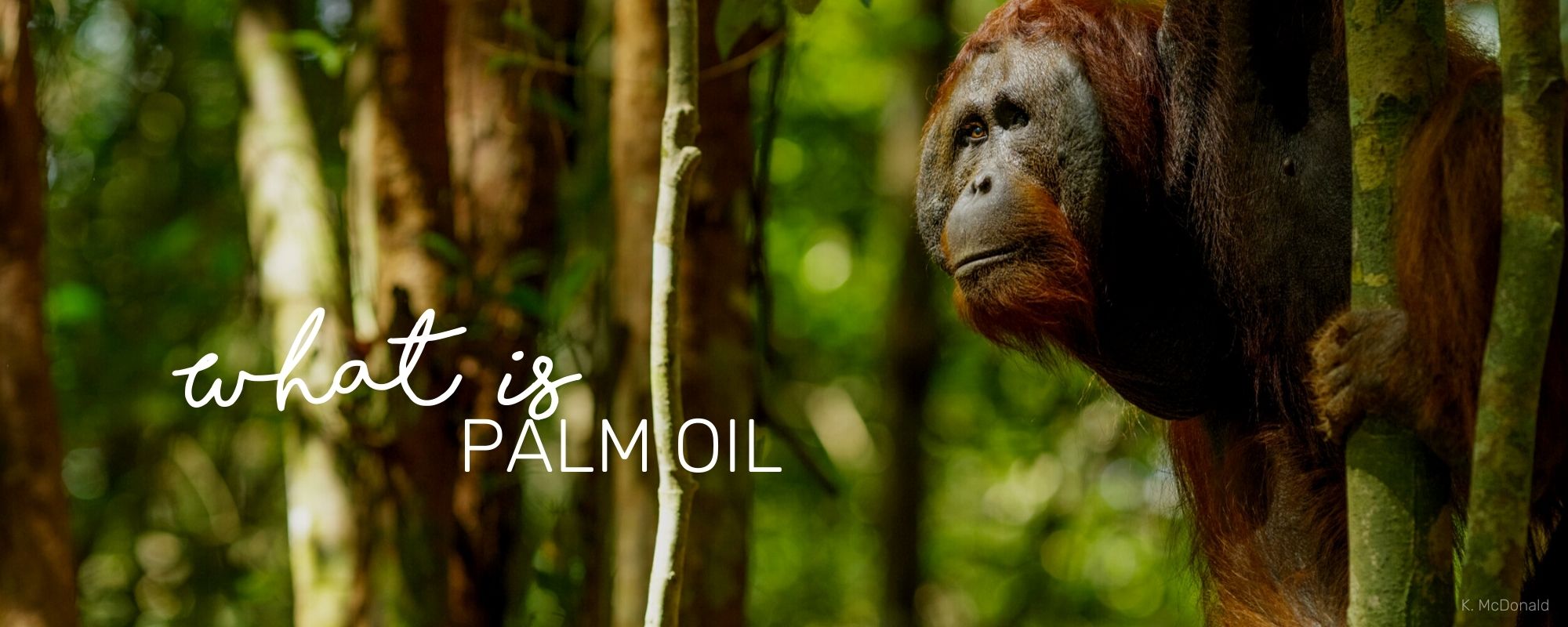
WHAT IS PALM OIL?
Posted on
“As an ambassador of Palm Oil Investigations, this is a topic close to Shannon’s heart. Our founder, Shannon Wild, uses her work to raise awareness about the devastating effects of the unsustainable palm oil industry and destructive farming practices as a whole.”
Approaching life on Earth as informed, connected, and compassionate citizens will naturally lighten our impact on our sensitive environment. So we, through sharing information and creating avenues of support, try to cultivate a community of eco-conscious Earthlings who make choices that conserve our natural resources.
The palm oil industry is one of the most destructive farming practices in action today. But, it doesn’t have to be. In order to eliminate palm oil products out of our lives, consumers - you and me - need to cut out hundreds of popular brands of processed foods, household cleaning products, cosmetics, personal hygiene products, and even certain biodiesel fuels. This seemingly impossible task doesn’t need to be so daunting. As more information on palm oil farming emerges, the difference between destructive palm oil and certified sustainable palm oil is explained.
What is palm oil?
Palm oil is the world’s most efficient and affordable vegetable oil and it is used in a huge array of convenience products, with devastating effects on the environment. Toothpaste, baby formula, peanut butter, lipstick, biscuits, soap, and “health-food” bars that use palm oil in multiple forms have created a demand that is not only destroying natural landscapes, but killing off animal species and resulting in premature deaths due to air pollution.
The oil is made from the fruits of African oil palm trees, which grow naturally in tropical rainforest areas and has been widely used by people in Central and West Africa for centuries. The problem with palm oil is that the demand for it has led to its migration across continents. Indonesia and Malaysia are now the world’s largest suppliers (85%) of this (originally African) vegetable oil, and this unsustainable farming has led to catastrophic results.
Why is it bad?
-
For our wildlife? Habitat loss leading to species endangerment, cruelty and feeding exotic wildlife trade with orphaned orangutans.
-
For our climate? Loss of rainforest, nutrient soil and oxygen. High greenhouse gas and fossil fuels in the atmosphere leading to climate change.
-
For our fellow humans? Exploitation of cheap labour and child labour. Air pollution related to mass burning leads to premature deaths.
One of the most heart-wrenching images of recent wildlife tragedies shows the fate of the orangutan - so many of which are found emaciated, scorched, and stranded, if they have not already perished, painfully. Ten thousand Bornean orangutans died EVERY YEAR for 15 years between 1999 and 2015. Critically endangered, these great apes face an uncertain future due to unregulated, unsustainable palm oil farms ploughing through their natural habitat. Precious rainforest in Indonesia and Malaysia continues to go up in smoke to create room for more and more palm oil plantations.
What can we do?
Instead of boycotting palm oil altogether (which would also have hugely detrimental effects), we can get to know the facts and make informed choices about our consumption. Here is a guide on which products commonly found on supermarket shelves contain uncertified palm oil, and which use palm oil from certified sources. Choosing whole foods from local sources is healthier and friendlier to the environment, but when it comes to feeding a family, shopping organic is a luxury.
“Do what you can with the knowledge you have and the Earth (and your conscience) will thank you!”
 Written by Chloe Cooper
Written by Chloe Cooper
New products and discounts first!
RETAIL & STUDIO
The Farm House, R527
Hoedspruit LP South Africa
Whatsapp: +27 79 225 4988
contact@wildinafrica.store
. . . . . . . . .
HEAD OFFICE
65/2 Arbor Ave, Robina
QLD 4226 Australia
